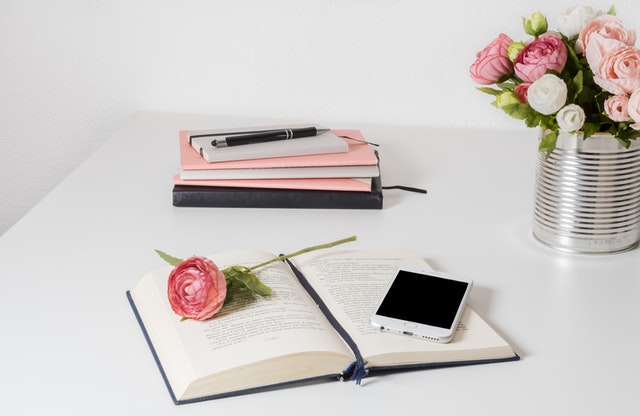
In this article, you will learn effective study tips for college students.
A university is an institution where students are trained to become leaders, innovators, creators, and thinkers, capable of generating a positive impact on society and the nation in general. A university equips students with the knowledge and skills necessary to create anything of value.
So how can a student successfully graduate from college without having a curriculum? How does a student combine social activities and learning without getting distracted or failing?
Therefore, there is a need for study tips to properly design a study plan.
Many students study but still find it very difficult to pass the exams, something is wrong in this case.
Such a category of student is not doing something well or is probably not doing enough to achieve the stated goal, which is excellence.
Why study at a university?
There are different reasons to study at a university, some students just want to be considered a graduate, while others really want to build a career.
However, according to the “no plan for college”, there are 8 reasons why students go to college;
- Earn more money
- come out of your shell
- acquire new skills
- find your address
- Live a healthier and happier life
- Expand your career options
- See the world
- Participates
Whatever the reason, there is a similar goal for college students, which is to graduate with outstanding results.
15 Effective Study Tips for College
1. Organization is the key to success:
There is a general expression that “if you fail to plan, you are planning to fail”. So make sure you get a college planner.
It can be a creatively designed planner, a simple notebook, a wall calendar, or even a small dry-erase calendar for your desk that changes every month.
A calendar is better for checking appointments, events, and due dates, while a notebook planner of some kind will be better for planning on the go, wherever you are. This planner will keep you on track when you’re in class or in a meeting with your advisor.
However, if a digital device works better for you, set up an agenda on your mobile device.
You can set reminders for test dates, department events, study times, and assignment due dates.
2. Change your environment:
A change in the study environment could help improve academic performance in college. Imagine leaving a noisy environment to study in a quiet environment, a better result is not unreasonable. This is because a studious student tends to concentrate better and assimilate faster in that environment.
As you look at your bedroom walls, there is a strong tendency to repeatedly drift into the arms of Netflix or Xbox. Instead, grab your laptop or your printed notes and find a quiet place to study.
A study skill for college students includes getting out of the house and experiencing a change of scenery.
This is one of the effective study tips for college students.
3. Group study:
A group study is an amazing tip that works, however, studying on your own before joining a group study is more effective. It helps in a better exchange of ideas or knowledge and makes difficult courses easier to understand.
Group study is a study tip that outstanding college students find really helpful in tackling difficult or challenging courses.
Although you cannot be together in person with your group study partners, you could opt for the option of forming an online study group. Find your colleagues online and set a designated time each week to meet online and review each other.
Use a free service like Facebook, Zoom, or Skype video chat option.
Another effective way to study with a friend or group of friends is to become an online tutor to someone who is taking the same class.
This will force you to review the work frequently, think about the material, and engage in question-and-answer sessions.
4. Create a Super Study Space:
What helps you focus while you study? Is it your favorite music, total silence, or snacks?
Find the things that help you focus and create your own super study space. Think outside the box to create a room that encourages you to study.
This might mean keeping teas or essential oils, such as rosemary or ginseng, on hand to help you focus. It could mean bringing your favorite blanket or pillow for extra comfort.
You can have soft music playing softly in the background or your own favorite band on autoplay. You might have a stash of brain food on hand, like pumpkin seeds, dark chocolate, oranges, or almonds, to help you get through it.
5. Study before classes:
If you study before classes and make it a routine, this will help a good retentive memory of the topics that have been previously covered by your tutor or teacher.
This will help you to be more prepared during the session, but there is also another advantage.
Listening to the information repeatedly will also help with better retention. If the lectures are live, record them so you can watch them again during designated study times.
Take notes during each lecture and then take half an hour afterward to rewrite them in a more coherent way, or jot them down in a notebook, to make them neater and easier to follow.
This is one of the effective study tips for college students.
6. Prioritize your work:
Another effective study tip is to prioritize your work from most important to least important.
As a college student, use this to your advantage by spending the majority of your study time in the classes that you find most challenging.
However, spend less time studying for classes that are easier for you.
7. Ask for help:
If you don’t understand a concept or find a course difficult, ask for help. Get together with outstanding students or the best in the class, they could help you get through the difficult part of your studies.
You can also stop by your teachers’ offices during their office hours or send them an email.
Some classes may even have Whatsapp or Telegram groups, created to keep students engaged and ask questions outside of class.
8. Don’t overcrowd:
If you make daily study a routine, there will be no need to study for tests.
While it may seem like a good idea to learn a semester’s worth of information in one night, it’s not an effective study habit, as it causes a lot of unnecessary stress.
Instead of cramming, study a little bit of information every day for at least 30 minutes.
You are likely to remember more, feel calm and prepared when exam time approaches.
This is one of the effective study tips for college students.
9. Study smarter, not harder:
Sometimes university professors reveal information about topics that will or will not be seen in an exam, take it seriously. They are sharing this information to serve as a guide as they study for the exams.
With the tips your teacher gives you, which serve as a focus area while you study, you can focus on the important points.
10. Take breaks while studying:
Reading for extremely long hours can be tiring and exhausting, causing the brain to slow down. Breaks while studying give you a productivity boost, reset and prevent burnout.
Also, taking breaks can help you make the most of your study time with the least amount of stress.
11. Get enough rest:
According to an article from the University of ST. Augustine for Health Sciences, a recent study found a positive relationship between students’ grades and the amount of sleep they are getting.
However, getting enough sleep is important as you prepare for outstanding performance on exams. It doesn’t necessarily mean you have to get 8 hours of sleep, but getting enough rest is essential for your brain to function properly.
Also, fatigue slows down effective assimilation while studying, so it is necessary to get enough sleep before doing most of the studying.
12. Stock your study area with the materials you need:
Your desk or study table should be equipped with all the materials you may need to complete the task, for example, stationery, paper clips, stapler, dictionary, snacks, and liquid drinks, etc.
For some tasks, you may need a calculator or other supplies. With your materials at hand, you can study without interruption.
If you have an answering machine, let it do its thing during your study time. You can return calls once you have finished studying.
Bringing your snacks and drinks to study will eliminate those endless trips to the kitchen that could break your concentration.
This is one of the effective study tips for college students.
13. Keep track of assignments:
Write it down, including the details, and keep it in your notebook. Knowing exactly what you are expected to do and when you are expected to do it is the first giant step in completing important tasks successfully and on time.
Also, make a note of the questions given in the assignments as it could possibly be an exam question.
14. Overlearning material improves memory:
Psychologists tell us that the secret of learning for future reference is overlearning. Experts suggest that after you can say, “I know this material,” you should continue to study that material for an additional quarter of the original study time.
How did you learn it? Probably through recitation, which is the best way to etch material into the memory trace.
In order to have better assimilation of the study materials, it is better to manipulate the material in as many ways as possible; write, read, touch, listen and say it.
In an experimental study, students who learned too much material retained four times as much after one month as students who didn’t learn too much.
15. Examine yourself:
After studying, it is important that you evaluate yourself to determine your level of assimilation. Therefore, after reading, prepare possible quiz or test questions, then set the time and test yourself.
This is an effective study tip that will produce outstanding academic performance. It is not enough to study, it is also important to examine yourself and determine how prepared you are for an upcoming exam.
In fact, taking a series of tests builds confidence before an exam.
This is one of the effective study tips for college students.

















Please help with application forms.